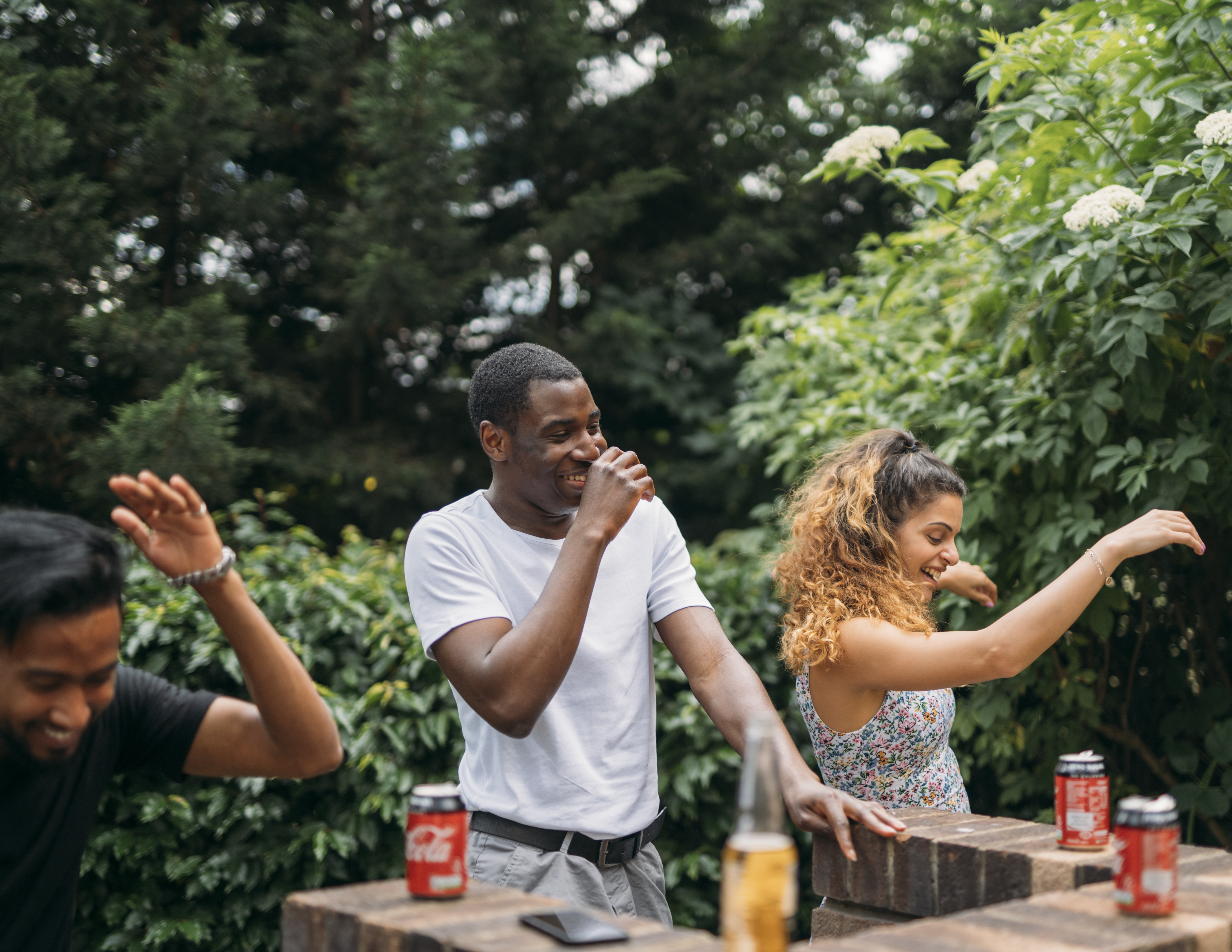The evolution of friendships
Today is the International Day of Friendship and we’re taking some time to think about friendships and how they evolve over time.
Our friendships are some of the most important relationships we’ll experience in our lives.
They can start at any time and come in many different guises.
As we grow and change, it’s only natural that the special relationships we’ve formed with our friends can sometimes change too.
At first, this can be quite daunting but it doesn’t have to be a negative thing. Especially once you understand that, as happens with all relationships, friendships evolve.
This can happen for a number of reasons, like starting uni, moving away from home, meeting new and different friends or general changes in each other’s lifestyles.

Life cycle of friendships
Friendship can come in a number of forms and according to Psychology Today, there are four levels of friendship:
- Acquaintances – people you ‘sort of know’
- Casual friends – people you spend time with on a regular basis but only mainly through shared activities (class mates, housemates, work colleagues, people in your study group).
- Close friends – usually evolve from acquaintances to causal friends before getting to this phase. These are the people you take time to hang out with and enjoy each other’s company. They’re the people you trust, share secrets with and can turn to when you’re need them.
- Intimate friends – the ‘best friend/BFF’ and the person/people you’re most intensely connected to. These are who you trust wholeheartedly with your emotions and deepest secrets. Intimate friendships can also be formed with romantic partners but not always.
Creating healthy boundaries
Having boundaries is important as they can help give your friendships balance.
As much as you love spending time with your friends, hanging out with them and being there for them when they need you, you need to make time for yourself too.
If you’re always available and give most of your time to be there for your friends, you can find yourself getting exhausted and this could make you resentful of them.
It’s OK to give yourself a break.
Don’t worry about missing out, don’t worry that you’re not being a ‘good friend’, sometimes you need a break to have some ‘me time’.
Letting your friends know you that you need to take some time out is perfectly acceptable.
Choosing not to pick up the phone after a certain time of night because that’s your bed time or that you can’t hang out on Thursday nights because you have a gym class is fine, and they’ll probably be really understanding about it.
Being able to take a break and do something for you will make you happier in the long run and friends that are happy are great to be around!
Friendship break ups
Breakups can be hard, including when a friendship breaks up.
Friendships can break up for many reasons. Sometimes they simply fizzle out, sometimes they come to a dramatic end and sometimes you decide to go your separate ways and the breakup is amicable.
But, if the time comes for the relationship to end, clarity is best for both parties involved (where possible).
If you’re doing the breaking up…
If you’re the one ending the friendship, communicate clearly and break it off as cleanly as you can. The other person may still feel hurt but they should have less questions and be able to get over it more quickly than if they’re left wondering ‘what have I done?’. This is usually better if it’s done via a phone call, a voice note or in-person rather than via a text or message.
If you can literally use your voice, that’s always a better option as you can explain how you feel and why you’re ending the friendship, and it’s less likely to be misinterpreted.
It can be tempting to get it over and done with via text or to even to just ghost someone, but the effect that ghosting can have on you both – that sense of not knowing why something happened or why you’re not speaking anymore – can be unsettling.
Clarity can help you both to really understanding what went on in your friendship and help you realise that maybe it wasn’t working out for either of you anymore.
To talk it through might not be a pleasant conversation and it may be painful but in the long run it will hopefully lessen any bad feeling.
Being on the receiving end…
Don’t beat yourself up – some friendships come to an end and that’s OK.
It’s natural to feel sad and grieve the end of the friendship and it’s also fine not to – just feel your feeling and seek clarity
You may have been feeling the same way or the break up could have come out of the blue.
Either way, friendship break ups offer an opportunity to reflect on what kind of friend we are and think about what we want and need from friendships going forward.

Celebrate your friendships
There are so many benefits to having good friendships. For one, healthy friendships are proven to be good for your mental health.
Our friends are the people who know us the best, warts and all, and are the people we know best too. They’re there in our hard times to offer a shoulder to cry on as well as in the good times, sharing our joy and helping us celebrate our wins.
Friends come in all different forms but however they come into our lives and whoever they are, it’s important to take stock and be thankful for the people we’ve chosen (and who’ve chosen us) as friends.
Be grateful to them for being part of our journey, whatever phase they join us at and however long they stay.
Search
Location inspiration
If you're not sure where you're heading yet, take a look around our properties in all corners of the UK.

Great Newton House, Liverpool

Shoreditch, London